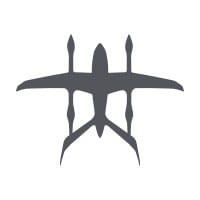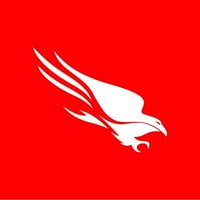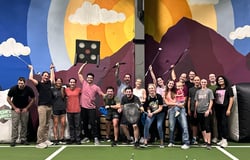How you will contribute to revolutionizing electric aviation:
- Lead the implementation of new products into production (NPI) while optimizing existing processes.
- Evaluate, improve, and advance existing and new novel manufacturing processes.
- Develop and execute scalable manufacturing strategies to meet increasing production demands.
- Apply Lean Manufacturing principles to eliminate waste and streamline operations.
- Work cross-functionally with program management, design, supply chain, quality, and automation teams to optimize manufacturing.
- Lead a team of manufacturing engineers, providing guidance and professional development.
- Ensure processes comply with FAA Part 21 production requirements through virtual builds and real life demonstrations.
- Own the creation of capacity planning, process capability studies, and improvement plans.
- Ensure manufacturing processes and changes meet design, performance, and regulatory requirements.
- Work closely with R&D engineers, tooling design engineers, and manufacturing teams to develop, implement, and validate products (DFM/DFA), processes and process improvements.
- Support continuous improvement initiatives to enhance efficiency, quality, and cost-effectiveness.
Minimum Qualifications:
- Bachelor’s degree in Manufacturing, Mechanical, Electrical, Industrial Engineering, or a related field.
- 5+ years of experience in manufacturing, aerospace, automotive, or high-rate production.
- Strong background in New Product Introduction (NPI), Lean Manufacturing, Six Sigma, and process optimization.
- Expertise in DFX, Design for Manufacturability, Design for Assembly, Design to Cost.
- Proficiency in one or more manufacturing methods, automation, assembly, electronics, machining, forming, plastics, etc.
- Experience in scaling production, integrating new products, and driving cost reduction.
- Demonstrated leadership in managing, mentoring, and developing engineering teams.
- Proficiency in statistical process control (SPC), measurement systems analysis (MSA), and root cause analysis (RCA).
- Knowledge of automation, digital manufacturing, and advanced production technologies.
- Familiarity with FAA Part 21 production requirements and quality systems is a plus.
- Strong ability to write detailed technical reports and communicate findings effectively.
- Ability to lead and manage cross-functional teams in a fast-paced, dynamic environment.
- Experience with GD&T, tolerance stack-ups, and metrology tools for precision manufacturing.
- Takes initiative in identifying and resolving process validation challenges.
- Data-driven decision maker, using analytics to guide process improvements.
- Familiarity with software tools such as Catia, Solidworks, Minitab, and ERP/MES systems.
Above and Beyond Qualifications:
- Prior experience in battery manufacturing, EVTOL, aerospace, or electric aircraft startup environment.
- Experience with advanced manufacturing techniques, automation, and Industry 4.0 technologies.
- Strategic and hands-on leader, balancing immediate execution with future scalability.
- Innovative problem solver, driving step-change improvements in manufacturing efficiency.
- Collaborative and cross-functional, working across teams to align on operational goals.
- Mentor and team builder, developing a high-performing engineering team.
- Experience with FAA conformity, AS9100, and regulatory compliance in an aerospace manufacturing environment.
Physical Demands and Work Environment:
- Ability to be active on their feet for a full 8-hour shift.
- Ability to occasionally lift and/or move up to 25 pounds.
- Ability to be in front of a computer for at least several hours.
Top Skills

What We Do
BETA Technologies is creating an electric transportation ecosystem that’s safe, reliable and sustainable. A relentlessly focused team is building an extensive charging infrastructure and ALIA, the world’s most technologically advanced electric vertical aircraft (EVA).
BETA’s platform and products are strikingly simple. Prioritization of safety and a pragmatic approach to certification drive elegant redundancy, appropriate diversity of implementation and simplicity of control. ALIA’s fixed-pitch propellers and centrally located batteries make it an inherently stable aircraft that is safe to fly and easy to maneuver.








